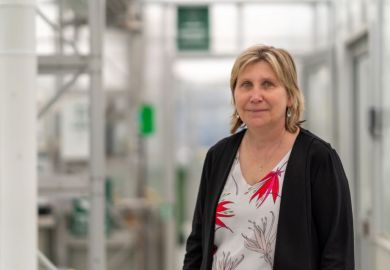As my tenure as chief executive of UK Research and Innovation enters its final six months, I am increasingly finding myself being asked by colleagues in other nations to speak about our initiatives on interdisciplinarity, research culture, career path diversity, infrastructure investment and metascience.
Those requests reflect the fact that the creation of UKRI in 2018 has been transformative. UKRI is an internationally recognised strength for the UK, with many nations looking to emulate our success in bringing together the seven discipline-focused research councils, and the two sector-focused councils (Research England and Innovate UK) into a single organisation.
UKRI budgets are now 30 per cent higher than in 2018, with operational expenditure only 1.6 per cent higher, and we have won much greater flexibility in how we manage our budgets. Across government, R&D budgets have increased even more, with UKRI now delivering a portfolio of programmes for a wide range of departments. Valued at over £2 billion in the current spending review period, these programmes cover areas as diverse as low-cost nuclear energy, sustainable shipping, farming innovation and connected and autonomous vehicles. UKRI is firmly established as the UK’s public sector research and innovation investment portfolio manager.
We have achieved this through collective leadership of UK research and innovation, transcending zero-sum thinking. Our executive committee is made up of the council executive chairs, along with key operational leads. Executive chairs can choose to operate at the level of their individual council, in bilateral and multilateral collaborations between councils, or fully collectively across all nine councils. They hold responsibility both for their council’s remit and also for the whole UK research and innovation system.
We view our portfolio through many lenses, leveraging diversity with connectivity to deliver more effectively and efficiently. Decisions about how to work in any particular case are made based on three shared goals: optimising outcomes for and from the research and innovation system and, therefore, the UK; making it as easy as possible for our many stakeholders to work with us; and ensuring that the taxpayers’ money with which we are entrusted is used effectively, efficiently and in a well-governed way. Balancing across these priorities requires true collective leadership.
This way of working is not intuitive for many, both inside UKRI and in the communities we serve. People point to the number of staff employed in roles that serve the whole of UKRI as evidence of centralisation, top-down control and added layers of bureaucracy. This, however, is the opposite of how UKRI now works.
We have worked together to locate activities so that they can be best delivered for each council and for the whole of UKRI. We experiment locally and share and adopt best practice where appropriate. Executive chairs have chosen to manage a significant proportion of our budget collectively, recognising the opportunity to do more together to a higher standard, than any part of the organisation can do alone.
This has allowed us to develop programmes such as our strategic themes, looking across our portfolio to identify gaps and opportunities to drive progress through targeted investment in areas such as green energy, tackling antimicrobial resistance, driving local economic growth, and improving national resilience to cybercrime. We are also working to optimise our collective investments in cross-cutting areas, such as food, space and the creative industries.
There is still a huge amount of work to do, and more benefit to be realised. Particular areas of focus at present include capturing the benefits from our ongoing software platform replacement programmes, which will make it much easier to collect and analyse data from across the organisation and provide a simpler and better funding service for our communities.
We are strengthening our strategy for supporting places across the UK, making the most of their diverse excellence. Similarly, work to optimise our support for commercialisation is ongoing, as are efforts to ensure – both within UKRI and across the whole R&I community – that we incentivise diverse career paths that allow people to thrive and to create robust networks across the R&I system.
All this work depends critically on our staff’s amazing breadth and depth of expertise, across disciplines and sectors. Key to our mission is deep engagement not just with academia but also with government, businesses large and small, the third sector and the public – locally, nationally and internationally.
Over my time at UKRI, I have enjoyed discussing an extraordinary range of ideas with an equally extraordinary range of people about what we should prioritise and how we could do things better. Our success depends on this advice. It is, of course, full of contradictions and tensions. But the unique opportunity offered by the creation of UKRI is to build a portfolio of investments and aligned incentives that navigates these tensions optimally for the UK’s research and innovation system.
UKRI is a critical national asset uniquely positioned to support the system at a time of significant challenge at all levels. I look forward to working with all stakeholders, now and beyond my time at UKRI, to rise to these challenges and make the most of the opportunities – to contribute to the new government’s mission-led, citizen-focused agenda and improve lives and livelihoods across the country and beyond.
Ottoline Leyser is chief executive of UK Research and Innovation.
Register to continue
Why register?
- Registration is free and only takes a moment
- Once registered, you can read 3 articles a month
- Sign up for our newsletter
Subscribe
Or subscribe for unlimited access to:
- Unlimited access to news, views, insights & reviews
- Digital editions
- Digital access to THE’s university and college rankings analysis
Already registered or a current subscriber?








